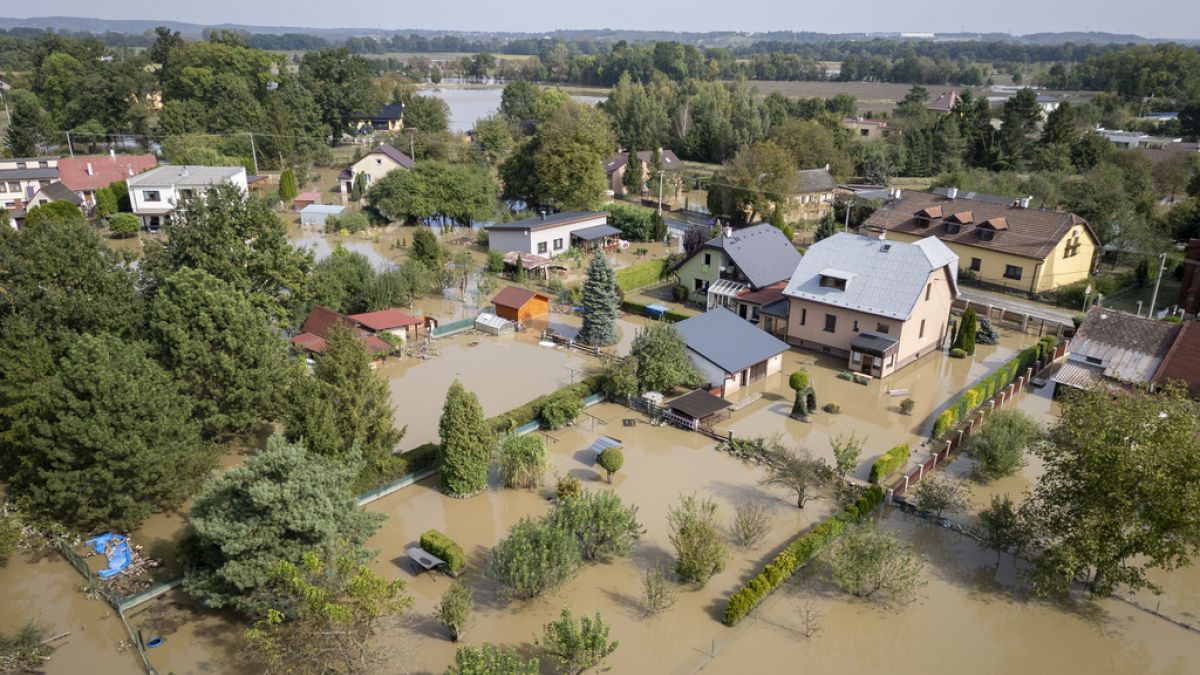Authorities have reported 23 deaths in Central Europe, as record rainfall has caused devastation to infrastructure in small towns.
Lukas Polster knew on Thursday evening that heavy rainfall was predicted in his town of Böheimkirchen in Lower Austria. When he asked his neighbour if they should take their cars out of the garage he shares with the other 24 flats in his building, his neighbour laughed.
“It was during the night between Saturday and Sunday that we realised the flood was a serious,” Polster said. “I was looking out of my window and I saw one metre of water right below my flat. I realised I had to get my documents and leave, but my brain stopped working in that moment.”
By Sunday morning, parts of the town, which has a population of just under 5,000, were submerged under a metre of water.
On Monday, the town’s mayor, Franz Haunold, announced that one person had died, with several people evacuated by helicopter as flood water from the nearby Michelbach river collapsed a bridge, flooded the offices of the fire brigade and partially destroyed the local sewage treatment plant.
“The infrastructure of the town is destroyed, at least 300 houses are not liveable in anymore,” Polster told Euronews, adding that heating in his own flat hadn’t been working since Saturday evening.
Austria is reeling from floods that have caused damage to multiple regions, including the capital Vienna where a portion of its entire summer rainfall hit the city in just one hour on Saturday, according to weather forecast provider UBIMET.
Multiple businesses along the city’s popular Donaukanal were forced to close when the river overflowed.
“Usually it’s a harmless little river, but if it rains around Vienna it can get really dangerous,” Rudi Konar, who owns bar Strandbar Herrmann on the canal, told Euronews.
“This is definitely the worst damage I have seen in 20 years. We are still assessing how much it will cost us overall.”
Austria joins Poland, the Czech Republic and Romania in being hit by record rainfall. So far, 23 deaths have been reported, with seven each in Poland and Romania, five in Austria and four in the Czech Republic.
Countries are focusing on assessing the damage as the flood water recedes. Numerous regions have been devastated, and thousands have been left without water or energy facilities.
Among the worst-affected areas is Lower Austria, with the Red Cross estimating almost 2,000 people have had to abandon their homes and go into emergency shelters.
“For many people in Lower Austria, it’s the third time in 20 years they are being forced to rebuild their homes — and it’s really hard the third time,” Christoph Riedl, Secretary General for Communication with Caritas in Lower Austria West, recalling the floods in 2002 where thousands lost their homes.
Reidl added that many emergency shelters had been flooded, meaning giving immediate aid was proving difficult.
Austrian Chancellor Karl Nehammer announced on Wednesday that €1 billion would be given to aid citizens after the floods, adding the full extent of the damage is not yet available.
In Böheimkirchen, help is only just starting to trickle in, with firefighters from other parts of the country arriving on Wednesday to pump water out of garages and homes and set up heating rooms for residents to stay warm.
“The heating and elevator in our flat is destroyed, as well as all our cars,” Polster said. “Our insurance only covers about 10%.”
“I have definitely been finding it hard to sleep these days.”

